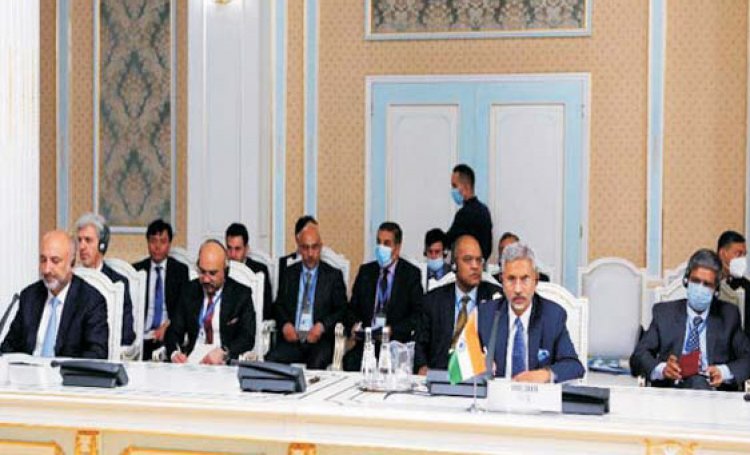Should the US have stayed on in Afghanistan?
Amulya Ganguli

America’s withdrawal from Vietnam in 1975 was generally welcomed. It was seen as an acknowledgment of the widespread belief that the US had no business to be there on the pretext of fighting communism.
It is different in Afghanistan. The Americans went there in 2001 following an attack on their homeland by Islamic terrorists based in the Afghanistan-Pakistan (Af-Pak) region. The Vietnamese never posed a direct threat to the western hemisphere although international communism did.
But communism today is dead while radical Islamism is alive and kicking. And it is likely to become more virulent after the US withdrawal because of its success in making a second superpower after the Soviet Union to run away from Afghanistan.
Moreover, they are far more violent than the Vietcong or the north Vietnamese were when they took over the non-communist south of the country. In Afghanistan, however, bloodshed is inevitable when the Islamic militants try to oust the non-theocratic and pro-women Afghan government and army which are in sync with the modern world.
It is the fear of Afghanistan again descending into medievalism and becoming the focal point of barbaric cruelty as it was two decades ago which has made several observers say that the US made a mistake by walking away and leaving the hapless Afghans to their fate. Among those who have voiced this feeling are the former US President, George W Bush, and a former commander of the US and NATO forces in Afghanistan, Gen. David Patraeus.
While Bush has said that the US withdrawal will lead to “unbelievably bad” consequences, Gen. Petraeus was afraid that the American decision will plunge Afghanistan into “a bloody civil war”, leading to the exodus of millions of refugees and curtailing the rights of women, democratic processes and civil liberties.
As girls’ schools are closed down and women are told to stay indoors or go out only when accompanied by a male relative, Afghanistan’s return to the dark ages will not only make it an oddity in the 21st century, but also a petri-dish of vicious terrorists under the guidance of religious bigots.
Even neighbouring Islamic countries like Pakistan and Iran may not escape the scourge of the Taliban’s zealotry if only because their societies are not as repressive of women’s and human rights as the Taliban and its equally venomous ally, the Islamic State, would like them to be.
Pakistan’s plight will be all the greater not only because it will have to bear the brunt of the inflow of refugees, but also because the Taliban’s resurgence will rejuvenate Pakistan’s own Tehrek-e-Taliban which regards the government in Islamabad as unIslamic. Pakistan’s hope, therefore, that the Taliban’s ascendency will provide it with its long-cherished strategic depth during a war with India is unlikely to be fulfilled.
Even as the Shanghai Cooperation Organization, of which India, China and Russia are members, pledged to initiate counter-terrorism measures, only the incorrigibly optimist will believe that the Taliban can be reined in. India’s concern relates, of course, to the likelihood of the Taliban fomenting militancy in Kashmir although there are some like the former Indian spymaster, A.S. Dulat, who believe that the Taliban will not interfere in Kashmir because its focus will be on gaining international recognition.
However, even if this is true of the “official” or the “good” Taliban which negotiated with the US and is also believed to be talking with India, there are bound to be groups within the outfit which will not listen to the voices of restraint. Besides, there will be others like the Haqqani network which will become active again in the “wild west” of the jehadi-controlled territory of Afghanistan.
India’s hope that Afghanistan’s future will not resemble its past is seemingly a forlorn one. Nor is it likely that New Delhi will respond favourably to Kabul’s request for military assistance. For all practical purposes, therefore, Afghanistan’s future appears doomed and Russia and China may regret their joy over America’s departure from their backyard.
The American desire to leave is understandable, of course. After two decades of a war which appeared unwinnable and the deaths of 2,400 soldiers and injuries to 20,000, the conflict was becoming militarily and politically unsustainable. Yet, a superpower’s responsibility is not always only to itself. The US fought two world wars away from home to save the world from German imperialism and Nazism at the cost of countless lives.
However, it became a superpower in the process as a tired and battered Europe lost its earlier high military and economic status while America’s size and resources saved it. Uncle Sam also gained from the inflow of academics and scientists from Europe and around the world to adorn the ivy league institutions.
Vietnam dented America’s cock-of-the-walk superiority. The US had misread the communist threat. As the fall of the Berlin wall in 1989 showed, communism was a house of cards. But, now, the US is up against another kind of bigotry – an ultra-orthodox creed which derives its inspiration from a twisted interpretation of religious texts which prescribe death for the infidels just as communism decreed death for the “unpersons”, to use an Orwellian term.
As America goes away from Afghanistan, it will leaving the door ajar for the jehadi brigade to regroup and recover from the 20-year war which saw the death of their mastermind, Osama bin Laden. Once they succeed in regaining their earlier resources and confidence, it is not only the neighbourhood which will attract their attention, but also targets further away such as America.
















